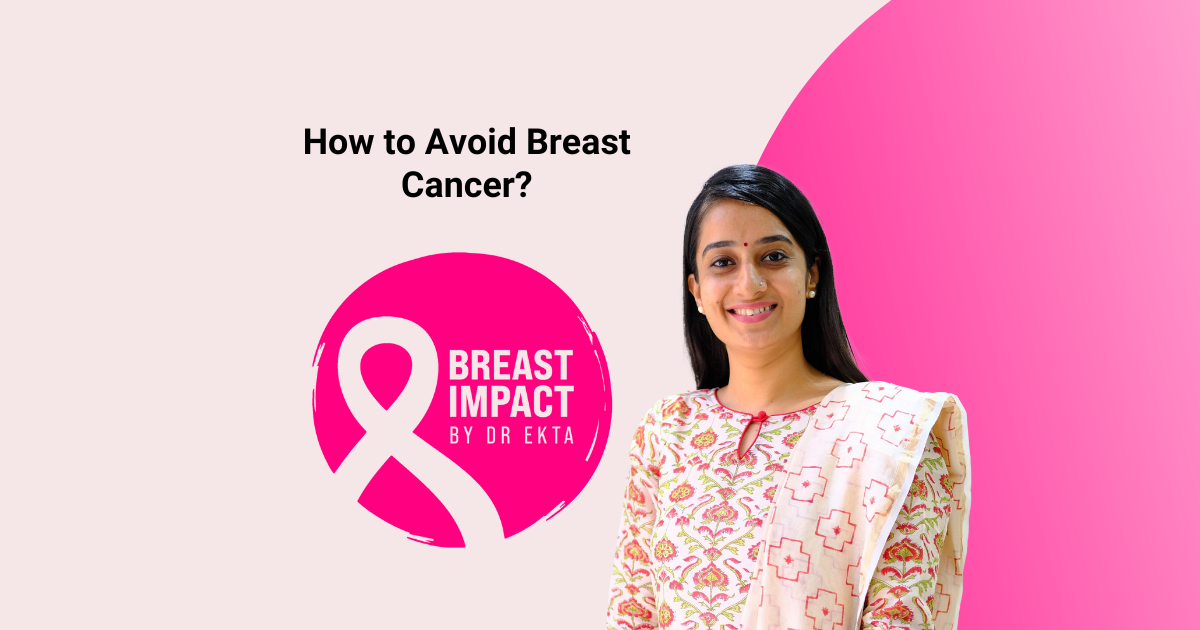Breast cancer remains one of the most common cancers among women worldwide, but the good news is that there are effective strategies to reduce your risk. While some risk factors like genetics cannot be controlled, many lifestyle choices and preventive measures can significantly lower your chances. In this blog, we will explore how to avoid breast cancer through practical tips and science-backed strategies that promote long-term health and early detection.
Understanding Breast Cancer Risk Factors
Before diving into prevention tips, it’s essential to understand what increases your risk:
- Genetics: A family history of breast cancer, especially mutations in BRCA1 or BRCA2 genes
- Age: Risk increases as you get older, particularly after age 50
- Hormonal factors: Early menstruation or late menopause
- Lifestyle choices: Sedentary lifestyle, alcohol consumption, smoking, and poor diet
- Obesity: Especially after menopause
Knowing your personal risk can help you make informed decisions about prevention.
Maintain a Healthy Weight
Excess body fat, particularly after menopause, is linked to an increased risk of breast cancer. Here’s how to maintain a healthy weight:
- Follow a balanced diet rich in fruits, vegetables, and whole grains
- Limit saturated fats and processed foods
- Exercise regularly (aim for at least 150 minutes of moderate activity per week)
- Monitor your weight consistently
Maintaining a healthy BMI can significantly lower your breast cancer risk and also benefit your overall health.
Stay Physically Active
Physical activity helps regulate hormones, boost the immune system, and maintain a healthy weight. You don’t have to be an athlete simple daily habits make a big difference:
- Walk or bike to nearby destinations instead of driving
- Take the stairs instead of elevators
- Join a dance, yoga, or fitness class
- Use a fitness tracker to stay accountable
Regular activity is one of the most effective long-term prevention strategies for reducing the risk of developing breast cancer.
Limit Alcohol Consumption
Drinking alcohol is directly linked to an increased risk of breast cancer. Even small amounts can increase hormone levels associated with breast cancer development:
- Limit intake to no more than one drink per day
- Choose alcohol-free alternatives or limit drinking to special occasions
- Track your consumption weekly to stay mindful
Reducing alcohol is a simple but powerful step toward prevention.
Quit Smoking
Smoking is harmful to nearly every organ in the body and increases breast cancer risk, especially in premenopausal women:
- Seek support through smoking cessation programs or apps
- Talk to your doctor about nicotine replacement therapies
- Avoid secondhand smoke whenever possible
- Replace smoking habits with healthier alternatives like chewing gum or deep breathing
If you currently smoke, quitting today can have immediate and long-term health benefits.
Breastfeed If Possible
Breastfeeding not only benefits the baby but can also reduce the mother’s risk of breast cancer. Here’s how:
- Aim to breastfeed exclusively for the first 6 months
- Continue breastfeeding along with solid foods for as long as possible
- Speak with a lactation consultant for support and guidance
Breastfeeding offers protective hormonal effects and lowers lifetime exposure to estrogen.
Be Cautious with Hormone Replacement Therapy (HRT)
HRT is commonly used to relieve menopause symptoms, but long-term use may increase breast cancer risk:
- Use the lowest effective dose for the shortest time necessary
- Explore non-hormonal alternatives with your doctor
- Regularly reassess the need for HRT
Always discuss risks and benefits with a qualified healthcare provider.
Eat a Nutrient-Rich Diet
Certain foods have been associated with a reduced risk of cancer. Incorporate these dietary habits into your routine:
- Focus on plant-based foods like leafy greens, berries, tomatoes, and beans
- Include healthy fats like omega-3s found in fish and flaxseeds
- Limit red and processed meats
- Choose organic options when possible to avoid pesticide exposure
A Mediterranean-style diet is often recommended for cancer prevention.
Know Your Family History
If breast cancer runs in your family, you may need to take extra precautions:
- Talk to a genetic counselor about testing for BRCA mutations
- Start screening earlier than average-risk individuals
- Consider enhanced surveillance such as MRI in addition to mammograms
- Discuss preventive options like medications or prophylactic surgery if necessary
Knowing your genetic risk helps personalize your prevention plan.
Get Regular Screenings
Early detection is one of the best ways to increase survival rates and catch cancer before it spreads:
- Begin annual mammograms at age 40 or earlier if you have risk factors
- Perform monthly breast self-exams to become familiar with your body
- Schedule regular clinical breast exams with your doctor
- Follow up immediately on any unusual changes like lumps, discharge, or skin dimpling
Manage Stress Effectively
While stress alone doesn’t cause breast cancer, chronic stress can lead to unhealthy behaviors and weakened immune function:
- Practice mindfulness techniques like meditation and deep breathing
- Stay socially connected and seek support when needed
- Get adequate sleep and maintain a consistent routine
- Consider professional counseling or therapy if stress becomes overwhelming
Taking care of your mental health supports your physical health as well.
Stay Informed with Trusted Sources
For evidence-based recommendations and updated guidelines, rely on trusted institutions:
- Centers for Disease Control and Prevention (CDC)
- National Cancer Institute (NCI)
- American Cancer Society
Final Thoughts: Prevention Is Empowering
While not all cases of breast cancer can be prevented, taking control of your lifestyle and staying informed significantly lowers your risk. Focus on healthy habits, regular check-ups, and being proactive about your health. Knowing how to avoid breast cancer is the first step in empowering yourself to make confident, informed choices.
If you’d like to speak to a oncologist or learn more about breast cancer screening, contact our team today or call 08866843843 for expert guidance tailored to your needs.

